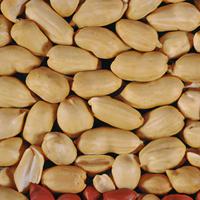
1 serving (28 grams) contains 166 calories, 7.0 grams of protein, 14.0 grams of fat, and 6.0 grams of carbohydrates.

Log this food in SnapCalorie

Nutrition Information
Calories |
885.3 | ||
|---|---|---|---|
% Daily Value* |
|||
| Total Fat | 74.7 g | 95% | |
| Saturated Fat | 10.7 g | 53% | |
| Polyunsaturated Fat | 0 g | ||
| Cholesterol | 0 mg | 0% | |
| Sodium | 485.3 mg | 21% | |
| Total Carbohydrates | 32 g | 11% | |
| Dietary Fiber | 10.7 g | 38% | |
| Sugars | 5.3 g | ||
| protein | 37.3 g | 74% | |
| Vitamin D | 0 mcg | 0% | |
| Calcium | 90.7 mg | 6% | |
| Iron | 3.2 mg | 17% | |
| Potassium | 997.3 mg | 21% | |
* Percent Daily Values are based on a 2,000 calorie diet. Your daily values may be higher or lower depending on your calorie needs.
Food Attributes
Source of Calories
About Dry roast peanuts
Dry roast peanuts are a popular snack made by roasting raw peanuts without the use of added oils, creating a crunchy texture and nutty flavor. Typically associated with both Asian and Western cuisines, they are commonly enjoyed on their own or as an ingredient in dishes like salads, sauces, and stir-fries. Dry roasted peanuts are rich in protein, fiber, healthy fats, and essential nutrients like magnesium, niacin, and vitamin E. They can promote heart health, aid digestion, and provide sustained energy. However, they may be high in calories, so portion control is key for those watching their intake. Some variants may be seasoned with salt or other flavorings, which can increase sodium content. Ideal for snacking or cooking, dry roast peanuts strike a balance between nutrition and flavor, appealing to health-conscious individuals and food enthusiasts alike.



